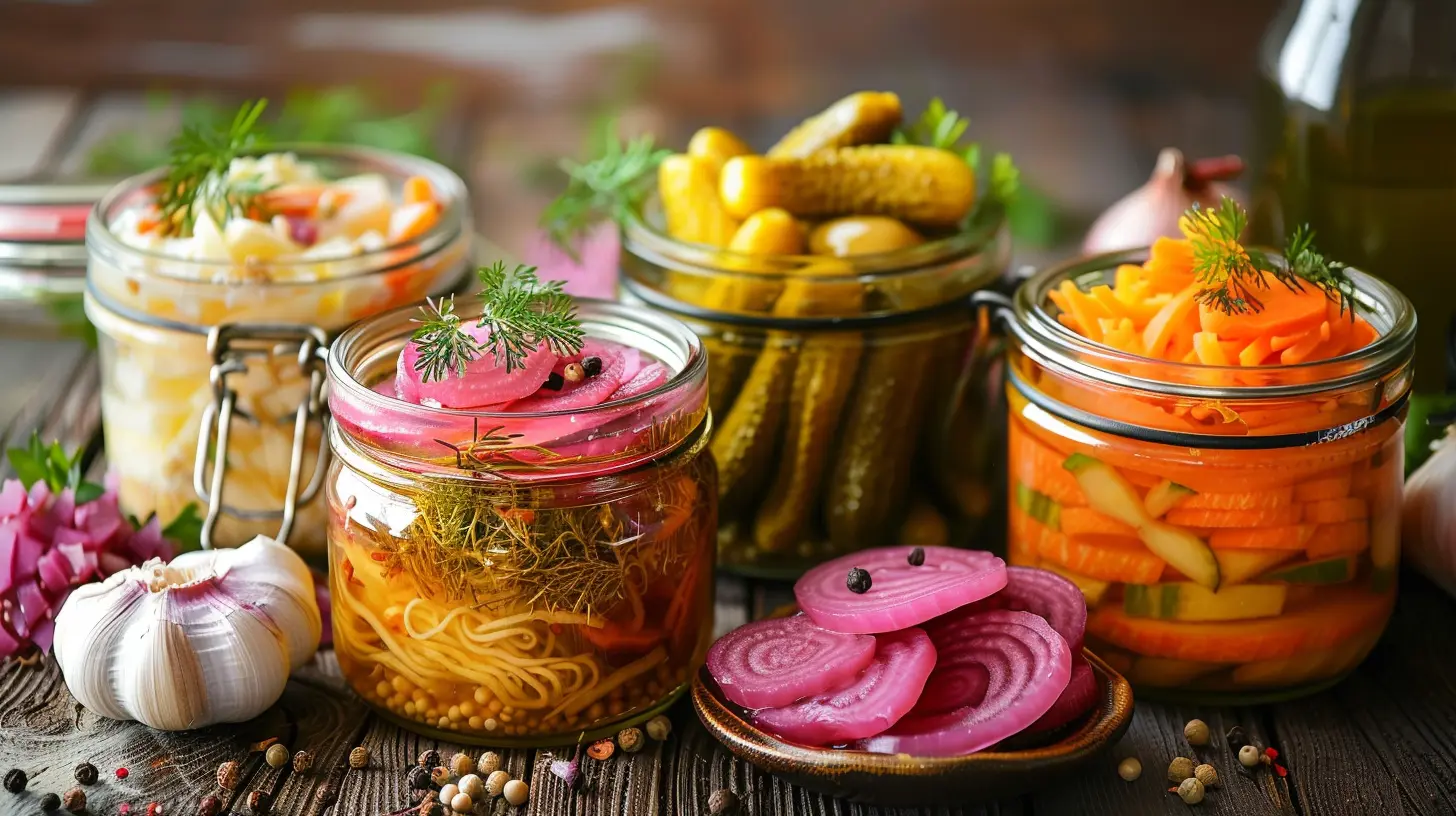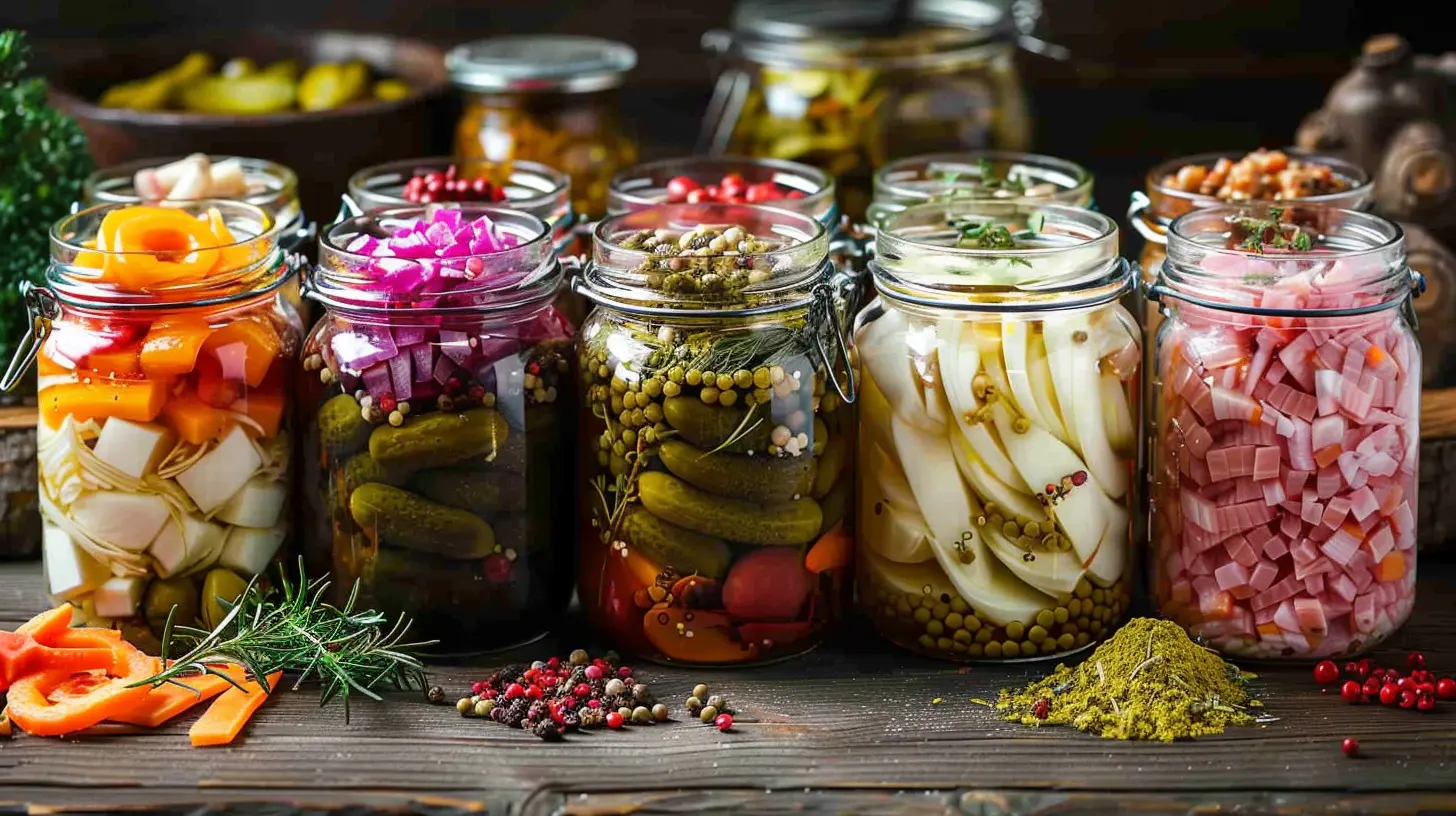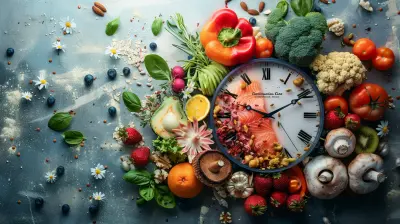Fermented vs. Pickled: What’s the Healthier Option for Your Gut?
15 November 2025
Gut health has become a hot topic lately, and for good reason! A happy gut means better digestion, stronger immunity, and even improved mood. And when it comes to gut-friendly foods, fermented and pickled options often steal the spotlight. But are they the same? And more importantly, which one is better for your gut?
Let’s break it down and settle the fermented vs. pickled debate once and for all!

Fermented vs. Pickled: What’s the Difference?
At first glance, fermented and pickled foods might seem pretty similar. They both pack a tangy punch, they’re often jarred, and they can extend the shelf life of your favorite veggies. But the way they’re made—and their effects on your gut—are entirely different.Fermentation: A Probiotic Powerhouse
Fermentation is a natural process where beneficial bacteria and yeast break down sugars in food, producing lactic acid (or alcohol, in some cases). This process not only enhances flavor but also fills the food with probiotics—those tiny, powerful microbes that help balance your gut.Common fermented foods include:
- Kimchi
- Sauerkraut
- Kefir
- Yogurt
- Miso
- Tempeh
- Kombucha
These foods are teeming with live bacteria that promote digestion, reduce bloating, and support a balanced gut microbiome.
Pickling: A Flavor Boost, But No Probiotics
Pickling, on the other hand, involves soaking foods in an acidic solution (like vinegar) or brine to preserve them. While pickled foods taste great and last longer, they don’t always provide the probiotic benefits of fermentation.Examples of pickled foods include:
- Classic pickles (cucumbers in vinegar brine)
- Pickled onions
- Pickled beets
- Pickled eggs
- Pickled olives
Some pickled foods, like traditional brined pickles, may undergo a fermentation-like process, but if they’re made with vinegar, they likely don’t contain live probiotics.

How Do Fermented and Pickled Foods Impact Gut Health?
Now, let’s talk gut health. Your gut is home to trillions of bacteria—both good and bad. The key to a happy digestive system is keeping that balance in check.Fermented Foods: Feeding Your Gut with Good Bacteria
Since fermented foods contain live probiotics, they can:✅ Improve digestion and nutrient absorption
✅ Strengthen your immune system
✅ Reduce bloating and gas
✅ Help combat gut disorders like IBS
✅ Even enhance mental health (yes, your gut and brain are linked!)
Think of fermented foods as "gut gardeners." They plant beneficial bacteria into your digestive system, helping it thrive and keeping harmful bacteria at bay.
Pickled Foods: A Tasty Treat, But Limited Gut Benefits
While pickled foods are delicious and rich in antioxidants, they don’t necessarily contribute to gut health in the same way. Most vinegar-pickled foods lack probiotics since the acidic environment kills off beneficial bacteria.However, that doesn’t mean pickled foods are bad! They can:
✅ Add variety and flavor to your meals
✅ Provide some antioxidants and nutrients
✅ Offer digestive benefits if they contain natural fiber
But unlike fermented foods, they don’t introduce live probiotics to your gut.

Which One Is Healthier?
If your goal is to boost gut health, fermented foods are the clear winner. They’re packed with probiotics that help restore and maintain a balanced gut microbiome.However, pickled foods still have their benefits. They’re a great low-calorie snack, provide essential vitamins, and can help preserve seasonal produce for longer periods.
Fermented vs. Pickled: A Quick Comparison
| Feature | Fermented Foods | Pickled Foods ||---------------|----------------|---------------|
| Contains Probiotics? | ✅ Yes | ❌ No (unless naturally fermented) |
| Gut Health Benefits? | ✅ Supports microbiome, improves digestion | ⚠️ Minimal benefits unless fermented |
| Preservation Method | Natural bacteria create lactic acid | Vinegar or brine solution |
| Taste | Tangy and slightly sour | Vinegary and sharp |
| Shelf-Life | Long (if stored properly) | Long (thanks to vinegar and salt) |

How to Tell If a Food Is Truly Fermented
Not all jars of pickles in the grocery aisle are probiotic-rich. Many commercial products are heat-pasteurized, which kills off beneficial bacteria.To make sure you're getting the real deal:
✔️ Look for words like “naturally fermented” or “with live cultures” on the label
✔️ Choose unpasteurized versions when possible
✔️ Opt for brands that use only salt and water (instead of vinegar) for preservation
✔️ If buying sauerkraut or kimchi, ensure it’s stored in the refrigerated section—live probiotics need the cold!
Can You Eat Both?
Absolutely! There’s no rule saying you have to pick one over the other. If you love the zing of pickled foods, enjoy them in moderation. Just keep in mind that fermented foods offer that extra probiotic boost your gut craves.Here’s a simple way to incorporate both into your diet:
🥗 Add kimchi to your rice bowls for a probiotic punch
🍔 Top your sandwiches with fermented sauerkraut for a crunchy twist
🥒 Enjoy a few vinegar-pickled cucumbers as a tangy side snack
🍹 Sip on kombucha instead of sugary sodas for a refreshing probiotic boost
DIY Fermented and Pickled Foods: A Fun Experiment for Your Gut
Want to take control of your gut health? Try making your own fermented and pickled foods at home!Easy Fermented Cabbage (Sauerkraut) Recipe
1. Shred one medium cabbage.2. Sprinkle 1 tablespoon of sea salt and massage the cabbage until it releases water.
3. Pack it tightly into a glass jar, making sure it’s submerged in its own liquid.
4. Cover with a breathable cloth and let it sit at room temperature for 1-2 weeks.
5. Taste-test after a few days—once it’s tangy, transfer it to the fridge and enjoy!
Quick Pickled Cucumbers Recipe
1. Slice cucumbers into rounds or spears.2. In a jar, combine 1 cup vinegar, 1 cup water, 1 tablespoon salt, and 1 tablespoon sugar.
3. Add garlic, dill, and peppercorns for extra flavor.
4. Pour the liquid over the cucumbers and seal the jar.
5. Refrigerate for 24 hours before enjoying!
Final Thoughts: The Verdict on Fermented vs. Pickled
If you’re serious about gut health, fermented foods should be your go-to. They introduce beneficial probiotics that help your digestion, immunity, and overall well-being.That said, pickled foods are still tasty and worth including in your diet for variety and flavor. The key takeaway? Not all pickled foods are fermented, but all fermented foods are technically pickled (thanks to their natural acidity).
So next time you’re at the grocery store, check those labels carefully—and maybe even try fermenting something yourself! Your gut will thank you.
all images in this post were generated using AI tools
Category:
Gut HealthAuthor:

Angelo McGillivray
Discussion
rate this article
1 comments
Rylan Lambert
Fermented foods promote probiotics; pickled offer less benefit.
November 15, 2025 at 4:32 AM

Angelo McGillivray
Thank you for your comment! While it's true that fermented foods are rich in probiotics, pickled foods can still offer health benefits. The key is to choose options that are naturally fermented rather than just vinegar-based.


